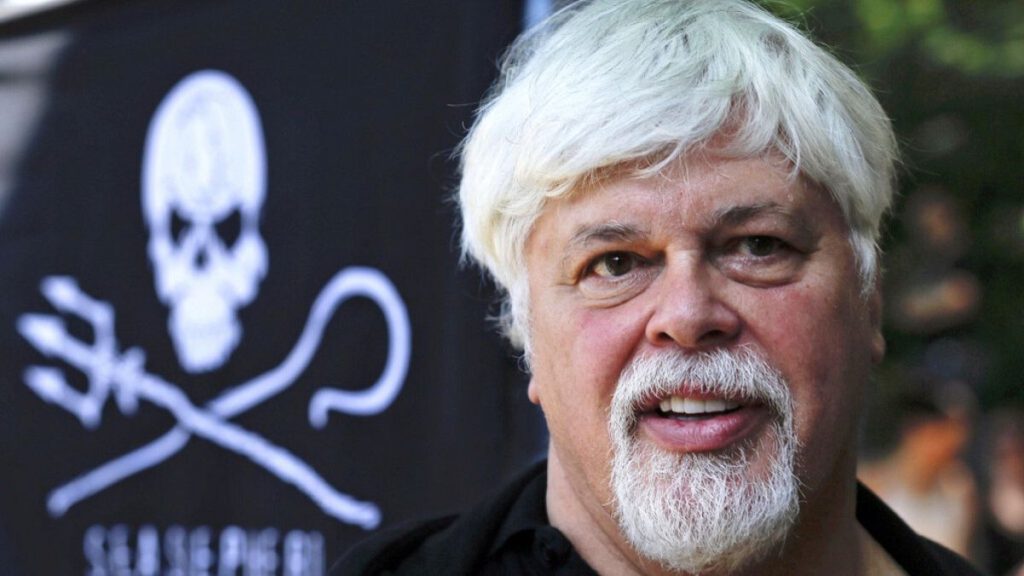Paul Watson, the 74-year-old founder of the Sea Shepherd Conservation Society, a prominent anti-whaling organization, has been released from detention in Greenland after a five-month ordeal stemming from a Japanese extradition request. Watson’s arrest in July 2023, while his ship was docked in Nuuk, Greenland’s capital, stemmed from a 2010 incident involving a confrontation with a Japanese whaling research vessel. Japanese authorities accused Watson of ordering his crew to throw explosives at the whaling ship, obstructing its official duties. The extradition request, however, was ultimately denied by the Danish Ministry of Justice, which oversees Greenland’s legal affairs, due to insufficient guarantees from Japan regarding the recognition of Watson’s time served in Greenland towards any potential sentence in Japan. This decision marked a significant victory for Watson and his supporters, who had vehemently argued that the charges were politically motivated and designed to silence his criticisms of Japan’s whaling practices.
Watson’s release was met with relief and jubilation by his family, supporters, and the broader anti-whaling community. He expressed his joy at being able to return home for Christmas, particularly emphasizing the hardship of being separated from his two young sons since June. The five-month detention undoubtedly took a toll on Watson, but his resolve remained unbroken. His immediate focus was on reuniting with his family in France, where he has resided since early 2023, enjoying notable support, including from President Emmanuel Macron. The incident highlighted the ongoing international tensions surrounding whaling and the lengths to which both sides are willing to go to defend their positions.
The incident involving Paul Watson and the Japanese whaling vessel in 2010 sparked a protracted legal battle that spanned over a decade. Japan issued an international arrest warrant shortly after the incident, effectively forcing Watson to remain in self-imposed exile for several years. While he continued his activism and leadership within Sea Shepherd, the threat of arrest loomed large, restricting his movements and creating a constant state of uncertainty. His arrest in Greenland brought the issue to the forefront once again, reigniting the debate surrounding Japan’s whaling practices and the role of activist organizations like Sea Shepherd.
Watson’s history of activism stretches back to his involvement with Greenpeace, another prominent environmental organization. However, his increasingly aggressive tactics led to a split with Greenpeace in 1977, prompting him to establish Sea Shepherd. The organization quickly gained notoriety for its confrontational approach to protecting marine life, often engaging in direct action against whaling vessels on the high seas. These tactics, while effective in raising awareness and disrupting whaling operations, also drew criticism and legal challenges. The 2010 incident with the Japanese research vessel became a focal point of this ongoing conflict, resulting in the arrest warrant that ultimately led to his detention in Greenland.
The underlying controversy surrounding whaling involves a complex interplay of cultural, economic, and environmental factors. Japan has long defended its whaling practices, claiming they are rooted in tradition and conducted for scientific research. However, critics, including organizations like Sea Shepherd and numerous international bodies, argue that these claims are a thinly veiled pretext for commercial whaling, which is largely prohibited under international law. Japan’s withdrawal from the International Whaling Commission in 2019 and the subsequent resumption of commercial whaling within its exclusive economic zone further inflamed tensions. The case of Paul Watson became emblematic of this broader dispute, highlighting the deep divisions and strong emotions on both sides.
The denial of Japan’s extradition request for Paul Watson represents a significant legal victory for the anti-whaling movement and a setback for Japan’s efforts to curtail Sea Shepherd’s activities. While the immediate threat of extradition has been averted, the underlying tensions surrounding whaling are likely to persist. The incident underscores the ongoing challenges in balancing cultural traditions, economic interests, and the imperative to protect endangered species. It also highlights the crucial role of activist organizations like Sea Shepherd in raising awareness and advocating for stronger international protections for marine life. The long-term impact of this case remains to be seen, but it undoubtedly serves as a pivotal moment in the ongoing struggle to safeguard the world’s oceans and their inhabitants.










